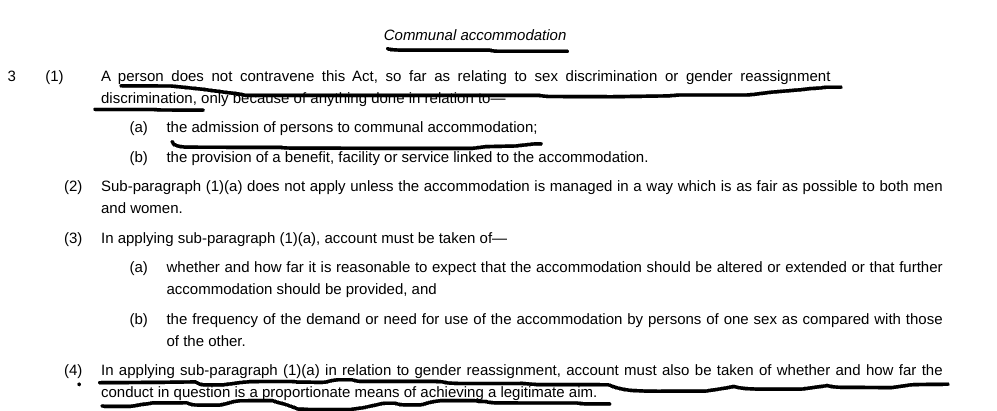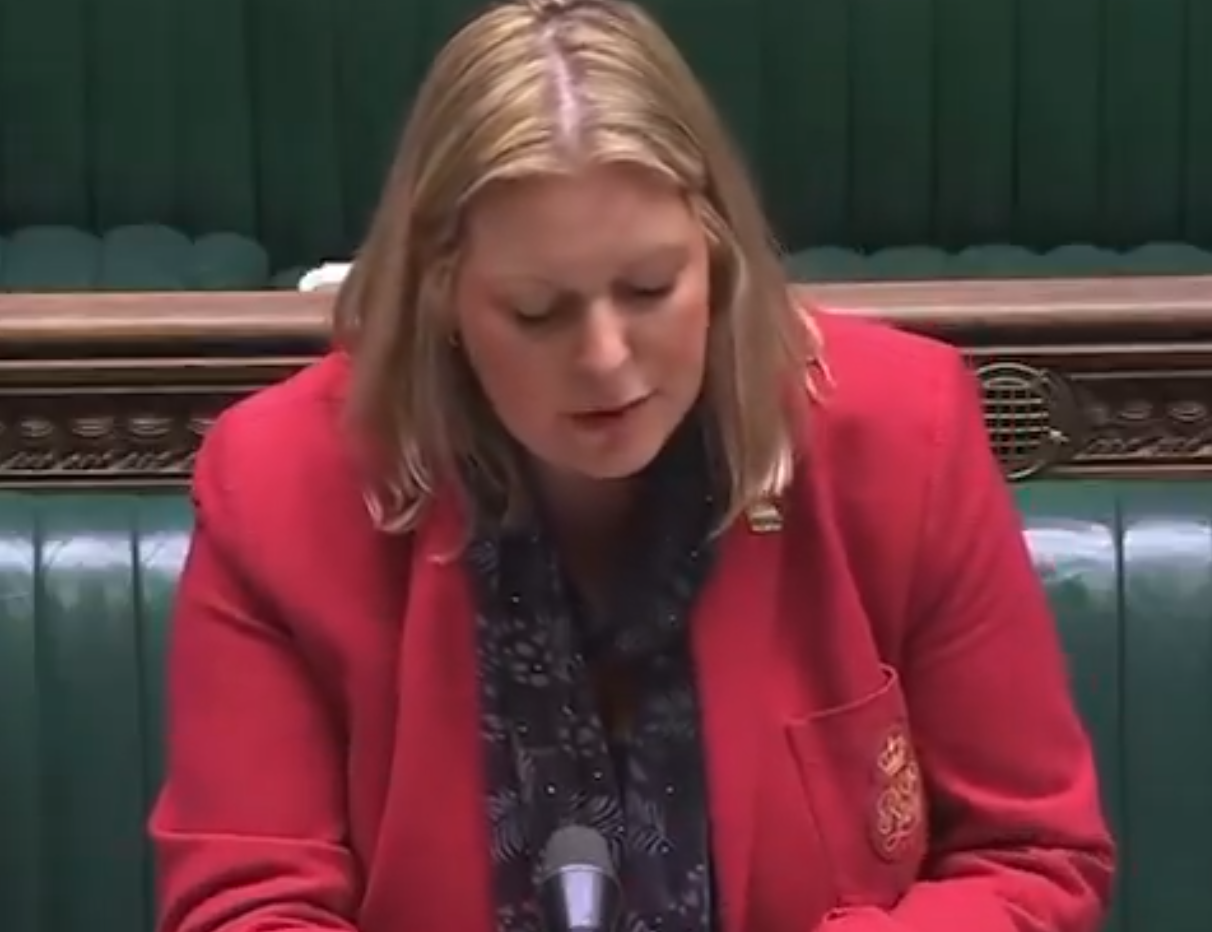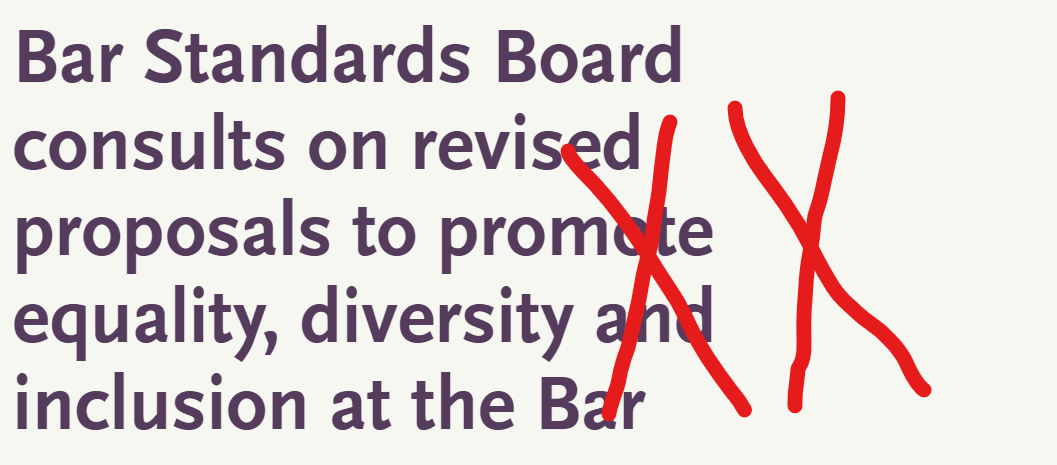Stonewall has left the Ministry of Justice but the Ministry of Justice has not left Stonewall

Written by Caroline ffiske. Published 25 November 2021.
Last week, in the House of Lords, there was a debate about the Government's prison policy which allows men who identify as transgender to be placed in women's prisons. This includes male prisoners who have obtained a gender recognition certificate as well as other male prisoners who claim to ‘identify as female’. Placement into the women's estate is automatic for those with a GRC. It is assessed on a case by case basis for other trans-identifying men. The policy was last updated and signed off by a Conservative Minister in January 2020.
The debate about this policy took place because Lord Blencathra
moved an amendment to the Police, Crime, Sentencing and Courts Bill. While the amendment was withdrawn at the end of the debate, it facilitated two important outcomes. Firstly, Parliamentary Under-Secretary of State for the Ministry of Justice, Lord Wolfson invited interested Lords to "a teach-in from officials, who will be able to provide noble Lords with information and explain how [the policy] works". Secondly, it provided a public and detailed explanation of how the Conservative Government justifies the prison policy in its current form.
The justification, presumably provided by Ministry of Justice officials, as set out
here by Lord Wolfson, is weak and ill-informed.
Firstly, Lord Wolfson emphasised that the policy is driven by compliance with the law. He said "Our policy is not driven by ideology; it is driven by compliance with the law of the land". He also said "I suggest to the Committee that that policy is correct in law...". Now anyone
not familiar with the law in this arcane area would surely assume upon reading this that there must be a
legal requirement for trans-identifying male prisoners to be placed in women's prisons. Well that is not so. The Ministry of Justice's policy is legal in the sense that it is not illegal.
A different approach would also be legal. It would be possible for the Ministry of Justice to house trans-identifying male prisoners separately from female prisoners by invoking specific clauses in the Equality Act which allow for single sex accommodation and service provision. The Equality Act specifies that single sex accomodation can be
justified when it is a ‘proportionate means of achieving a legitimate aim’.
The Government actively chooses
not to invoke these provisions in the Equality Act. Even though they are in the Act for a reason. I would argue that providing single sex spaces for imprisoned women, who have often been at the receiving end of male violence, and who cannot voluntarily opt out or away, should be the exemplary case where these provisions of the Equality Act are invoked. If not this, what? Given the existence of these provisions, I would argue that claiming the government’s position is ‘driven by compliance with the law’ is not just obfuscation, but incorrect.
Secondly, Lord Wolfson spoke about the need to protect people’s rights. He said “The high-level outcomes of the new Policy Framework are intended to strike an appropriate balance, ensuring”
first that: “All transgender individuals are managed safely with their rights properly respected and in accordance with the law”. Notice that came
first. Did women’s rights come
second? No, they didn’t get a specific mention. I suggest this sums up the problem. No-one has actually properly assessed the impact on women prisoners of forced intimate living alongside male-bodied prisoners. Put yourself in the situation. That’s what we need to do.
Thirdly, I take issue with Lord Wolfson’s over-focus on risk and risk management. For example, he says ‘The amendment … would mean that a prisoner with a GRC would never be held in the part of the prison estate that matched their acquired gender, even though in some cases this would
pose a manageable level of risk
and would, on balance, be the safest and most appropriate course of action’.
There is the blindspot. This issue is not
solely
about risk and risk management. We are talking about an environment - women’s prisons - which were
intended to be female only - and for good reasons that go beyond risk management. I would like readers to imagine, for example, a woman’s book-club picnic which is interrupted by a prison officer bringing along a trans-identifying male prisoner. Is it okay because there is
no
risk? Of course not, the women were planning a women-only event. I would like readers to imagine a public swimming pool's showering room where everyone is instructed to shower in their swimming costumes. A prisoner officer accompanies a trans-identifying male prisoner into the showers. Is it okay because there is no risk? Of course not, the women were expecting a space free from male presence and male gaze. Let’s imagine now that the trans-identifying male prisoner behaves just a very little bit badly - he leers at the women showering just a very little bit and perhaps comes just a very little bit inappropriately close. Is it okay because there is no risk? Of course not, the women were expecting a place free from this kind of discomfort.
Surely everyone can see that this is not just about risk management. It is about women’s right to privacy and dignity. It is about women’s right to a simple sense of security that they are in a female only space. You don’t see these wider women-centred concerns making headway into Lord Wolfson’s speech. They are wholly absent. We need to discuss them. The Ministry of Justice’s prison policy needs to reflect them.
Lord Wolfson stated that ‘our policy is not driven by ideology’. I don’t think this stands up to scrutiny. The
policy refers to people’s biological sex being ‘assigned to them at birth’. That is ideology.
The policy allows prisoners to ‘self-declare’ that they are transgender and prison staff are then required to use the prisoner’s chosen pronouns: ‘Staff must make every effort to communicate with individuals in ways that respect their gender identity, using appropriate verbal and written communication and use of pronouns’. That is ideology. It is also compelled speech. It might even be illegal, following the Maya Forstater case which protects gender critical views in the workplace.
The policy says ‘All individuals in our care must be supported to express the gender with which they identify’. What does this mean? A male entitlement to perform female stereotypes? I
think that is ideology.
Finally, the prison policy purports to outline the legal justification for its position. Have a look at
section 4.119:
‘Section 9 of the GRA 2004 requires that a person who has obtained a Gender Recognition Certificate must be treated in accordance with their acquired gender for all purposes’.
That is an incorrect summary of the wider legal position. I quote right back at you: The Equality Act on single sex accomodation (Schedule 23, 3): ‘A person does not contravene this Act, so far as relating to ... gender reassignment discrimination ... in relation to … the admission of persons to communal accommodation… In relation to gender reassignment, account must also be taken of whether and how far the conduct in question is a proportionate means of achieving a legitimate aim’. Imagine summarising the relevant legal position that informs a policy and leaving out an important part of the legal position. I
think that is ideology.
Stonewall may have left the Ministry of Justice but whoever is briefing Lord Wolfson has not left Stonewall. At the end of his speech, Lord Wolfson invited fellow Lords to ‘a teach-in from officials, who will be able to provide noble Lords with information and explain how it works’. If the noble Lords receive a repeat of the information in Lord Wolfson’s speech that will be inadequate and obfuscatory. Hence, this alternative briefing note.
Noble Lords - and Conservative MPs - need to be aware of the ideological imprint all over the Ministry of Justice's prison policy. They should request a bottom up review of the policy. Such a review must be free of ideology and accurate in statements of the law. At the centre of such a review must be the needs, the safety, and the dignity of women prisoners.







